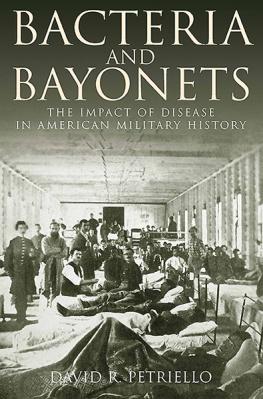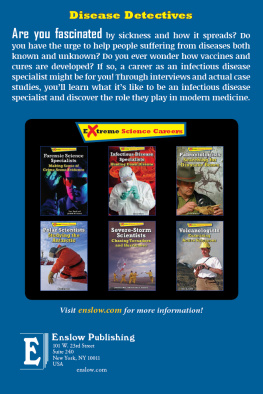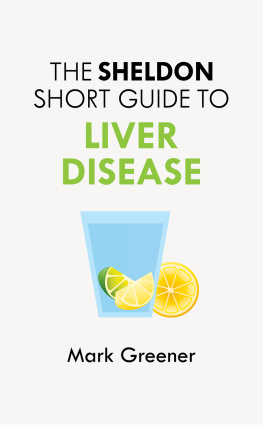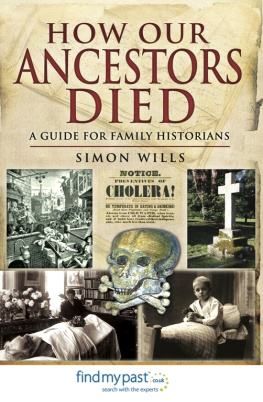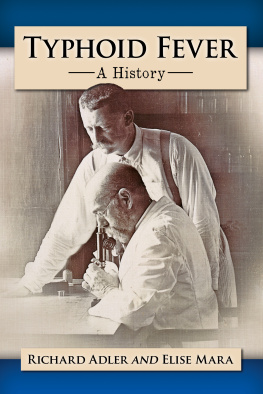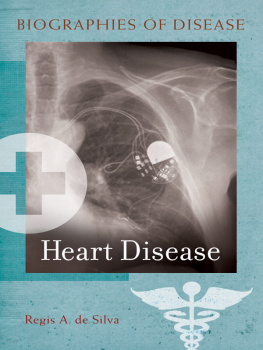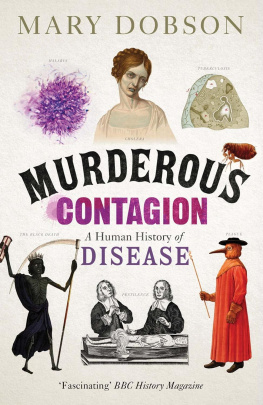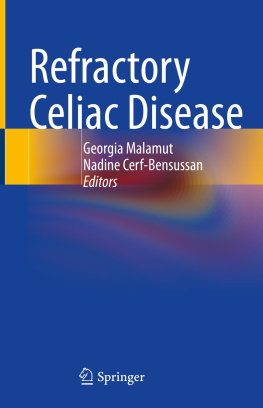Published in the United States of America and Great Britain in 2016 by
CASEMATE PUBLISHERS
1950 Lawrence Road, Havertown, PA 19083
and
10 Hythe Bridge Street, Oxford, OX1 2EW
Copyright 2016 David R. Petriello
ISBN 978-1-61200-341-2
Digital Edition: ISBN 978-1-61200-342-9
Cataloging-in-publication data is available from the Library of Congress and the British Library.
All rights reserved. No part of this book may be reproduced or transmitted in any form or by any means, electronic or mechanical including photocopying, recording or by any information storage and retrieval system, without permission from the Publisher in writing.
10 9 8 7 6 5 4 3 2 1
Printed and bound in the United States of America.
For a complete list of Casemate titles please contact:
CASEMATE PUBLISHERS (US)
Telephone (610) 853-9131, Fax (610) 853-9146
E-mail:
CASEMATE PUBLISHERS (UK)
Telephone (01865) 241249, Fax (01865) 794449
E-mail:
PREFACE
W hat killed the most soldiers during the Civil War, what allowed the Spanish to conquer various Native American cultures, what doomed the British in the South during the American Revolution, what prevented America from conquering Canada disease. Having studied and taught American history for years, it became evident to both my students and myself that the answer to many of the questions regarding American historical events was disease. Surely if the term continued to occur as one progressed through a study of the countrys past, it must be an important factor throughout the nations military history. Thus, this work was created to more carefully study and detail that specific importance and detail how history has often hinged upon microbes.
In many ways though, this book is a study of what-ifs. When one studies history, the impact of an event is the prime focus, yet the possibilities of what could have been should also be kept in mind. It is historical fact that disease destroyed many Native American civilizations, pestilence wiped out the Viking colonies of Greenland, and that the American invasion of Canada in 1775 was stopped by illness. What if disease had not wiped out the Native Americans, what if the Viking colonies had not succumbed to plague, what if a variety of illnesses had not crippled the American attack on Quebec? This book seeks to not only examine the interconnectedness between disease and American military history, but also challenges the reader to think of how the nation and world would have been different had the various pestilences not arisen and impacted events when and how they did. As history and experience have shown time and time again, much of war cannot be planned for.
Yet, this book does not seek to establish that disease was the only factor that contributed to significant events in American military history. Historical events are the products of a series of causes and variables. While some historians devote both books and their lifetimes to promoting one or another factor as the sine qua non, this author merely seeks to address one of the many factors in the evolution of various American historical events, not elevate it to primary status. That decision is left up to the reader.
In the matter of an apologia, the history of disease is an immense topic. Books could be written alone on each chapter, or subchapter of this work. The author does not claim to provide here a history of all disease in the chronology of America. This book should merely be seen as an overview or snapshot of the impact that disease has had on the nations development. An introduction to a field of study underappreciated and in need of further examination.
INTRODUCTION
War is the father of all.
HERACLITUS
W hen Heraclitus opined the above statement, he was perhaps making a broader claim about the evolution of both man and society. On any scale, competition drives advancement. For Heraclitus, war was the ultimate form of competition; the greatest change agent in the ancient world. War produced heroes, leaders, empires, tools, inventions, explorationin short, advancement. Yet for the ancient world in general, the Greeks in particular, and even Heraclitus personally, there was a greater factor impacting life and society: disease.
The ancients undoubtedly appreciated disease as a powerful force in life. Such major deities as Apollo and Isis were duly consulted during outbreaks of contagion by the Greeks and the Egyptians. In addition, plague was a major plot tool utilized by the poet Homer at the beginning of the martial classic the Iliad, where a vengeful Apollo Smintheus cut down the Greeks with his arrows of pestilence. Finally, to appreciate the impact of disease upon ancient military history, one needs look no further than the Periclean Plague that swept Athens early in the Peloponnesian War, or the Justinian Plague that doomed the impending re-conquest of Italy by the Byzantine Empire. Though the nature of these contagions is still debated, their effects are well established. The first pestilence not only carried off Athens most promising leader but severely crippled its ability to wage war as well, while the latter accomplished what hordes of barbarians could not. In fact, it would not be hyperbole to credit these two sicknesses as major factors in both Athens subsequent loss to Sparta and the permanent dissolution of Europe.
History is replete with examples of how contagion impacted war and battles on every continent. Evidence of this arises in the Black Plague that was pushed westward by the Mongol invasions, the downfall of Alexanders great empire after he succumbed to contagion, and the typhus that crippled the armies of Napoleon in Russia, not General Winter which is normally blamed. How many thousands of other battles, skirmishes, campaigns, and even wars were in some part impacted by the presence of illness? In fact siege as a very tactic had at its core the desire to strangle an enemy until famine and disease reduced him to surrender.
Appreciating its influence, many famous authors of military canons included the issue of pestilence within their works. Sun Tzu, for one, advised commanders to, camp on hard ground, the army will be free from disease of every kind, and this will spell victory. The Roman commander urges his readers to remedy the situation by engaging the soldiers in daily exercises to keep them fit and less susceptible to illness, very modern thinking indeed. Men from Machiavelli to Napoleon to Adolf Hitler likewise opined on the effects of disease on the military might of a nation.
Contagion has historically impacted every segment of warfare. It lurks in the causes, drives planning, preparation, and strategy, and ultimately helps to decide the winner. It is as true in American military history as that of any other nation. If Heraclitus is correct, and war is the father of all, than disease is the mother.
CHAPTER ONE
COLUMBUS DAY OR CONTAGION DAY
DISEASE ARRIVES IN AMERICA
A pestilence seized them, characterized by great pustules, which rotted their bodies with a great stench, so that their limbs fell to pieces in four or five days.
DIEGO DE LANDA, 16TH CENTURY
I n May of 1521 Hernan Cortes stood before the sprawling and well protected Aztec capital of Tenochtitlan, one of the largest cities in the world at the time. The Spanish had been violently expelled from the city the year before during the infamous La Noche Triste (Night of Sorrows). Yet Cortes now brazenly besieged the metropolis of perhaps 100,000 souls with an army of only slightly over a thousand Spaniards. What followed was one of the most remarkable military accomplishments of the last two thousand years. In less than three months, over half of the Aztec population was dead, along with their emperor, and the once great capital was reduced to smoldering ruins. The Aztec Empire, a regional juggernaut a generation before, was laid low.

